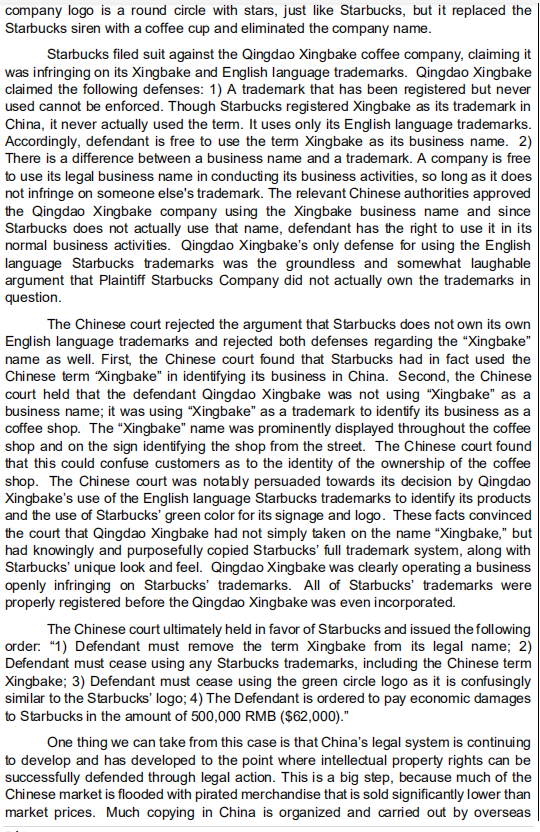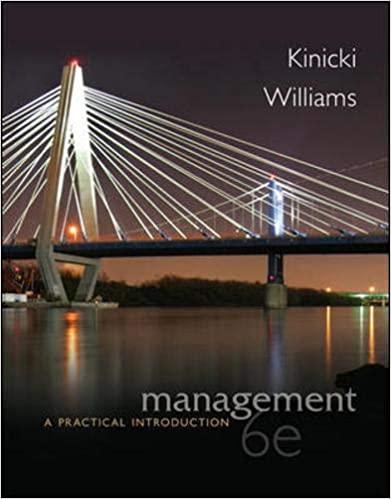company logo is a round circle with stars, just like Starbucks, but it replaced the Starbucks siren with a coffee cup and eliminated the company name. Starbucks filed suit against the Qingdao Xingbake coffee company, claiming it was infringing on its Xingbake and English language trademarks. Qingdao Xingbake claimed the following defenses: 1) A trademark that has been registered but never used cannot be enforced. Though Starbucks registered Xingbake as its trademark in China, it never actually used the term. It uses only its English language trademarks. Accordingly, defendant is free to use the term Xingbake as its business name. 2) There is a difference between a business name and a trademark. A company is free to use its legal business name in conducting its business activities, so long as it does not infringe on someone else's trademark. The relevant Chinese authorities approved the Qingdao Xingbake company using the Xingbake business name and since Starbucks does not actually use that name, defendant has the right to use it in its normal business activities. Qingdao Xingbake's only defense for using the English language Starbucks trademarks was the groundless and somewhat laughable argument that Plaintiff Starbucks Company did not actually own the trademarks in question. The Chinese court rejected the argument that Starbucks does not own its own English language trademarks and rejected both defenses regarding the "Xingbake" name as well. First, the Chinese court found that Starbucks had in fact used the Chinese term "Xingbake" in identifying its business in China. Second, the Chinese court held that the defendant Qingdao Xingbake was not using "Xingbake" as a business name; it was using "Xingbake" as a trademark to identify its business as a coffee shop. The "Xingbake" name was prominently displayed throughout the coffee shop and on the sign identifying the shop from the street. The Chinese court found that this could confuse customers as to the identity of the ownership of the coffee shop. The Chinese court was notably persuaded towards its decision by Qingdao Xingbake's use of the English language Starbucks trademarks to identify its products and the use of Starbucks' green color for its signage and logo. These facts convinced the court that Qingdao Xingbake had not simply taken on the name "Xingbake," but had knowingly and purposefully copied Starbucks' full trademark system, along with Starbucks' unique look and feel. Qingdao Xingbake was clearly operating a business openly infringing on Starbucks' trademarks. All of Starbucks' trademarks were properly registered before the Qingdao Xingbake was even incorporated. The Chinese court ultimately held in favor of Starbucks and issued the following order. "1) Defendant must remove the term Xingbake from its legal name; 2) Defendant must cease using any Starbucks trademarks, including the Chinese term Xingbake; 3) Defendant must cease using the green circle logo as it is confusingly similar to the Starbucks' logo; 4) The Defendant is ordered to pay economic damages to Starbucks in the amount of 500,000 RMB ($62,000)." One thing we can take from this case is that China's legal system is continuing to develop and has developed to the point where intellectual property rights can be successfully defended through legal action. This is a big step, because much of the Chinese market is flooded with pirated merchandise that is sold significantly lower than market prices. Much copying in China is organized and carried out by overseasChinese based in Taiwan, Hong Kong, Canada, and the United States, which increases the complexity of dealing with intellectual property infringement issues in China








